
The Syrian army on Thursday said that its forces had recaptured the city of Bukamal from Islamic State, essentially ending the militants’ claim to territory in Iraq and Syria and securing credit for the final blow to Bashar al-Assad, Russia and their allied militias.
“The liberation of Al Bukamal is of great importance because it represents the failure of the ISIS terrorist project in the region generally, and the collapse of its supporters’ illusions to divide it, to control large parts of the Syria-Iraq borders and to secure supply routes between the two countries,” Syrian Arab Army spokesperson General Ali Mayhoub said.
By Friday morning, however, a U.K.-based monitoring group said nearly 50 percent of Bukamal was back under ISIS control, while others said the city had never really been fully captured at all.
AFP reported that a group of ISIS fighters had launched a counter-attack on the city, taking back several northern neighborhoods.
“IS started counter-attacking on Thursday night and retook more than 40 percent of the town of Albu Kamal,” SOHR head Rami Abdel Rahman told AFP, using an acronym for Islamic State. “The jihadists went back in and retook several neighbourhoods in the north, northeast and northwest. IS is trying to defend its last bastion.”
Syria watchers on social media questioned whether the Syrians had truly captured Bukamal in the first place.
Deconfliction dibs
Hassan Hassan, a senior Fellow at the Tahrir Institute for Middle East Policy who is from Bukamal, tweeted on Wednesday, “The SDF and the regime were advancing toward Albu Kamal, so the regime announced it’s retaken it (to mark it as its territory, so the SDF or other forces don’t take it).”
“So this is a “call-dibs strategy” for Deir Ezzor to prevent the other side from taking it.”
Hassan made the point that the “liberation” of Mayadeen was announced without much fighting, but the Syrian government “has only shown footage from one corner of the city near the outer layer that would have enabled it to cross the river into Al Omar oilfield.”
Lt. Gen. Harrigan, commander of Air Force central command, shows pic of infamous phone used for Russian deconfliction. #ASC17 pic.twitter.com/6hniwEjWKP
— Jacqueline Klimas (@jacqklimas) September 18, 2017
On Friday, Nicholas A. Heras, a Middle East Security Fellow at the Center for a New American Security, replied, saying that deconfliction between the US and Russia allows a “call dibs” strategy in eastern Syria, preventing Coalition partners from entering any area.
A spokesperson for the U.S.-led Coalition against ISIS told The Defense Post that its own partners on the ground, the Syrian Democratic Forces, were continuing to advance toward the town of Baghuz to the southeast of Bukamal.
“The SDF is currently pushing toward Baghuz, to the southeast of Abu Kamal, and continues to liberate areas once controlled by ISIS. We know that the SDF continues to face resistance from ISIS fighters as they push toward Baghuz,” the spokesperson said.
Baghuz has recently come under the attention of the Iraqi Security Forces and allied Hashd al-Shaabi (Popular Mobilisation units) reportedly taking it from ISIS during the last week.
Iraqi Forces reportedly entered Syria and captured Al-Hiri / Huwayjat Baghuz from Islamic State
Map: https://t.co/49Hh6egCy8 pic.twitter.com/oHeILf4yB1
— Syrian Civil War Map (@CivilWarMap) November 4, 2017
Heras told The Defense Post that the SDF advance to Baghuz was to be expected given its strategic location on the border with Iraq and in the Middle Euphrates River Valley, in which the Coalition and Syrian sides have both been operating increasingly since the fall of Raqqa last month.
“Assad and his allies are compensating for manpower shortages by using the deconfliction agreement between the United States and Russia that was established in eastern Syria to their great advantage,” Heras said.
“In effect, when one of the two anti-ISIS coalitions-Assad and his allies or the U.S backed Syrian Democratic Forces-arrives in an area, the other coalition is supposed to suspend its combat operations in that area. Damascus wants to limit as much as it can the territory inside of Syria that falls under the control of U.S.-backed forces, because Assad fears that the Trump team will decide to use that territory against him.”
“What this means in application on the ground is that although the Assad Alliance might not have the forces capable to completely clear an area of ISIS, and to hold it afterwards from an ISIS insurgency, Damascus is rushing to claim deconfliction in areas throughout Deir Azzour province to box the United States out. Assad is not playing against ISIS so much as he is playing against the U.S.,” Heras concluded.
The Coalition also appeared to be skeptical of the Syrian army’s claims to Bukamal.
“We are aware of the Syrian regime’s claims of victory over ISIS in Abu Kamal. There is a lot of hard work remaining to clear small pockets of ISIS and prevent the terrorist organization’s resurgence,” the spokesperson said.

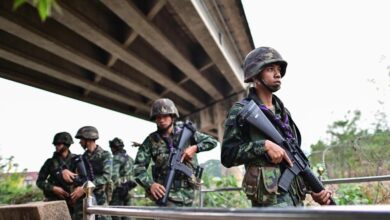

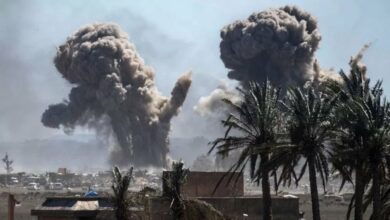
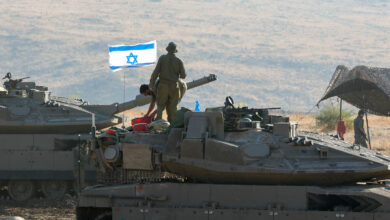
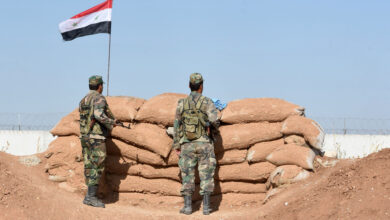
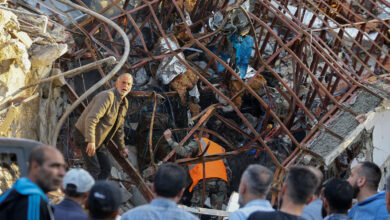

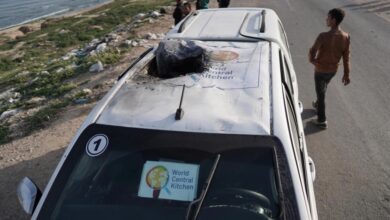
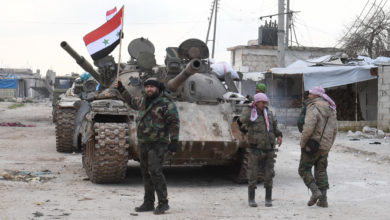

One Comment